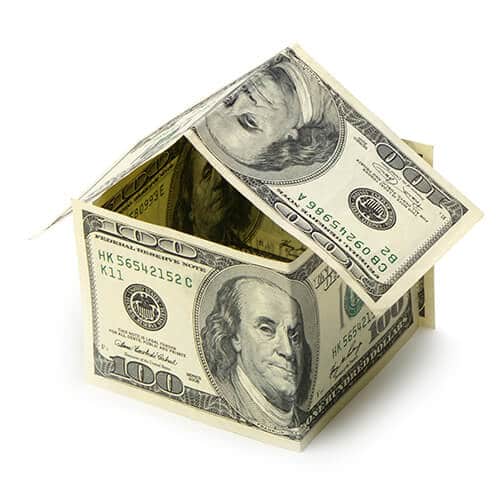Commercial real estate investing has long been a dependable wealth-building tool. Over time, CRE investments tend to perform the same as – or better than – stock market investments. Plus, real estate is often less volatile and less prone to dramatic fluctuations.
However, just as with any investment, commercial real estate comes with inherent risks. Mitigating these risks comes down to knowing the most common mistakes and understanding how to avoid them.
Page Contents
- 10 Common Commercial Real Estate Investing Mistakes (And How to Avoid Them)
- 1. Choosing the Wrong Property Type
- 2. Not Knowing the Numbers
- 3. Poor Tax Planning
- 4. Overlooking Due Diligence in Commercial Real Estate Investing
- 5. Overextending Yourself
- 6. Underestimating Renovation or Repair Costs
- 7. Going It Alone
- 8. Not Researching the Local Market
- 9. Failing to Diversify
- 10. Choosing the Wrong Property Management Company
10 Common Commercial Real Estate Investing Mistakes (And How to Avoid Them)
There is no right or wrong investment, but there is a right and wrong investment property for you.
1. Choosing the Wrong Property Type
 There are many types of commercial real estate, but the four “main food groups” are Office, Industrial, Retail, and Multifamily. Investors can also purchase raw land, mixed-use properties, special use properties, even storage units and RV parks.
There are many types of commercial real estate, but the four “main food groups” are Office, Industrial, Retail, and Multifamily. Investors can also purchase raw land, mixed-use properties, special use properties, even storage units and RV parks.
Each property type is unique – not only in its uses but also in its risks and benefits. For instance, multifamily properties typically see higher returns than other property types, but they require much more maintenance and management. On the other hand, industrial properties need very little oversight from a property owner or manager, but they may not perform as well over time financially.
Understanding each property type is vital to your success as a commercial real estate investor. There is no right or wrong investment, but there is a right and wrong investment property for you. Choosing a property type that doesn’t meet your expectations could lead to lower returns, poor management, and a less-than-desirable outcome.
Clearly outline your financial and personal goals before searching for an investment property. You may need to weigh the pros and cons of each property type to determine which property type will be the best investment for you and your family.
Real estate brokers, financial planners, and other industry professionals can help you learn which property type best meets your needs.
2. Not Knowing the Numbers
Overestimating returns or underestimating expenses can drastically reduce your asset’s viability. Before purchasing a property, the seller will disclose financial documentation indicating the asset’s rental income, current occupancy rates, expenses, and other vital information. Pay close attention, because overlooking these details could mean getting in over your head.
Financial research is an integral part of the due diligence process, which we’ll talk about in more detail below.
When considering the overall financial viability of a property, don’t forget to account for utility costs, property management expenses, and any necessary renovations or repairs that might arise. Investors should also account for unexpected costs and should have enough cash on hand to address these issues when they arise.
3. Poor Tax Planning
Many CRE investors choose real estate because of the tax advantages. Commercial real estate investing has some incredible upsides when it comes to taxes: deductions galore, depreciation, and possible 1031 Exchanges or Opportunity Zone Investing.
However, some investors have their vision clouded by these advantages and fail to see the bigger picture. Yes, there are some tax advantages to commercial real estate investing, but there are potential tax liabilities as well. Property taxes, for instance, can rise over time, giving you an unexpected expense. Tax planning should be a major consideration when purchasing a CRE property.
Capital gains taxes, on the other hand, are often unavoidable if an owner sells an asset for more than the initial purchase price. Therefore, it’s crucial to have a long-term strategy, understand the tax benefits and liabilities, and know the implications of each. Talk to a licensed real estate tax professional who can help you with your tax planning and can help you understand the implications of commercial real estate investing.
4. Overlooking Due Diligence in Commercial Real Estate Investing
We cannot emphasize this enough: due diligence in commercial real estate investing is of utmost importance.
Due diligence is the period of time between entering a contract with a seller and taking possession of the property. Sometimes, investors are so eager to close on a deal and start earning income that they fail to research the property thoroughly.
To avoid any unpleasant surprises, construct a team of highly-qualified real estate professionals who can help you carefully, and deliberately examine every aspect of a property. Due diligence should include poring over the current lease agreements and financial statements, conducting physical inspections of the property and assessing the need for renovations, and ensuring the building meets all federal, state, and local guidelines. A property valuation and evaluation of the local real estate market can also help you determine whether or not the property is a wise investment.
5. Overextending Yourself
Yes, commercial real estate can be a lucrative financial strategy. But it can also be a risky venture. Smart investors know just how much risk they can safely afford, and balance that risk with fiscal responsibility.
Sometimes, investors are so eager to make the deal, buy the property, and start seeing cash flow that they don’t accurately assess their own financial position. Overextending yourself financially, and assuming too much debt or too much risk, can be disastrous.
Instead, understand that real estate investing is a long-term strategy. Making thoughtful purchases will likely lead to wealth over time, but it’s not going to happen overnight. Before you invest in a property, take a realistic look at your financial position. Can you afford to buy this property while still comfortably paying your bills? What if there’s an unexpected expense? Do you have the funds available to pay for expensive maintenance or building vacancies, should they arise?
It’s fine to have big dreams, but don’t overextend yourself.
6. Underestimating Renovation or Repair Costs
 During your due diligence, clearly outline any renovations or repairs the building might need. Then, consult with contractors who can give you an accurate bid for the project. You’ll have to factor these costs into your cost-benefit analysis to determine whether this investment is wise.
During your due diligence, clearly outline any renovations or repairs the building might need. Then, consult with contractors who can give you an accurate bid for the project. You’ll have to factor these costs into your cost-benefit analysis to determine whether this investment is wise.
After you’ve purchased an investment property, be prepared for maintenance, repairs, and possible unforeseen renovations. Commercial real estate investing comes with unexpected expenses. It’s just a part of owning rental property. Expect that you will have at least minor repairs regularly, and significant costs – like water leaks, infrastructure problems, or electrical issues – at least once during the time you own the property.
Smart investors plan for the inevitable. If you have a financial cushion, these expenses won’t derail your financial goals.
7. Going It Alone
It can be difficult to admit that we don’t have all the answers. Even the most seasoned businessperson needs help from time to time. Commercial real estate investing requires careful consideration and evaluation. Don’t try to go it alone.
Instead, consult with experienced professionals who can advise and guide you through the process. Commercial real estate brokers can help you find properties that meet your financial and personal goals. Financial advisors can walk you through a long-term real estate investing strategy. Tax professionals and real estate attorneys will ensure you complete the process correctly, and that you take advantage of every tax advantage possible.
The smartest investors know that they don’t know it all. Consult with professionals who can help you make a wise investment decision. The highly-knowledgeable brokerage staff here at Lumicre would be honored to help guide you in your real estate investment journey.
8. Not Researching the Local Market
Before investing in a commercial real estate property, research the local area. What are the current price-per-square-foot rates, cap rates, and occupancy rates? Is the economy growing? Are there new construction projects or zoning requirements?
Understanding both the history and trajectory of a local area can help you determine whether a property is a good deal or not.
9. Failing to Diversify
Any investment expert will tell you that the key to minimizing your risks is to diversify your portfolio. The same is true for real estate investing.
If you’re new to commercial real estate investing, it’s generally a good idea to invest in one property type, in one area. However, as you become comfortable with investing, or if you have a large amount of capital to invest, you may decide to invest in multiple property types in various locations.
Furthermore, investing directly in a real estate property isn’t your only option. You can further diversify by investing through REITs, ETFs, or other real estate funds. Consult your financial advisor for more information about diversifying your portfolio.
10. Choosing the Wrong Property Management Company
CRE investors should not overlook the role property management plays in their overall financial success. Here at Lumicre, we believe in a tenant-centric approach. That is, if your tenants are happy, they will stay longer. And higher occupancy rates means more monthly cash flow as well as higher property valuation for your asset.
Quality, experienced property management can ensure every part of your commercial investment runs smoothly. From tenant communication to financial statements, property management teams can do it all.
Choosing the wrong property manager, however, can have drastic impacts on your bottom line. If your tenants are unhappy – they’re not receiving prompt communication or maintenance requests go unanswered– they will move to another location. The higher your vacancy rate, the lower your monthly profits and overall property value.
Therefore, it’s crucially important to not only hire a property management company to oversee your asset but to choose a company with a track record of excellence.
Commercial real estate investing can be an incredible wealth-building strategy. Though there are risks, investors can minimize these risks by avoiding these common pitfalls.